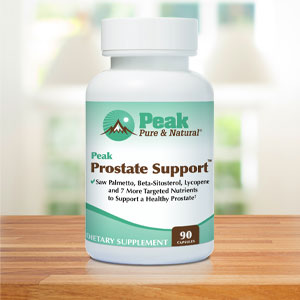I still remember having chickenpox at age six. I missed the better part of first grade.
That was decades ago. So why am I thinking about this now?
Because it makes me susceptible to a painful condition that affects about ten percent of people who have had chickenpox — and you’ve probably guessed that I’m referring to shingles.
That may not sound like a big risk. But some research I’ve read lately has me thinking more and more about getting the vaccine, not only to prevent this condition, but also because of its fascinating connection to dementia…
What is shingles?
Like me, you may have had chickenpox as a child. If so, you now have a virus lingering deep in the roots of your nerves that can be reactivated at any time.
If that virus wakes up, it can cause you to suffer painful blisters and searing nerve pain, possibly even long-term nerve damage.
This is shingles, also called herpes zoster, after the virus that causes it.
In mild cases, a band of fluid-filled blisters that itch intensely will appear, most commonly around the left or right side of the body.
In more severe cases, though, the pain of shingles can be so intense that even a slight breeze or pulling a sheet over the body can cause unbearable pain. This pain can last months or even years and is known as postherpetic neuralgia (PHN).
There are also several variations of shingles that have varying degrees of severity:
Ophthalmic shingles, or shingles of the eye, can cause complications including corneal ulcers, glaucoma and potential blindness.
Ramsey Hunt Syndrome is a form of shingles that can cause blisters in and around the ear and mouth on one side of the face. The virus attacks a central facial nerve and can result in loss of hearing, facial paralysis, ear pain and changes in the ability to taste.
Internal shingles happens when the virus affects the body but does not cause a rash. Symptoms may be mistaken for the flu: fever, headaches, muscle aches, chills, and swollen lymph nodes. If the virus attacks internal organs, pneumonia, hepatitis, or encephalitis can result. If you feel sick but have neurological symptoms, like numbness, tingling and burning under the skin, you need to get medical treatment immediately.
Shingrix does more than we bargained for
Since 2006, a vaccine called Zostavax has been used to prevent shingles, and in 2018, a new shingles vaccine called Shingrix was approved.
Unlike Zostavax, it does not use live viruses and is considered safer for people with compromised immune systems. But here’s an interesting “bonus” to both these vaccines:
In July 2024, research published in Nature Medicine revealed that the original Zostavax vaccine was associated with reduced risk of dementia and Alzheimer’s disease. At the time, the newly approved Shingrix vaccine, which became the treatment of choice for shingles, reduced that risk even more.
However, in these previous studies based on health records, researchers could not account for a significant source of bias: Vaccinated people tend to be more health-conscious. Behaviors such as diet and exercise, for instance, are known to influence dementia rates, but are not included in health records — so it was hard to truly narrow the reduced rates of dementia specifically to the vaccine.
Fast-forward to 2025, and the findings of a seven-year “accidental experiment” published in Nature in April 2025 appear to have strengthened the vaccination’s impact on dementia even more.
An ‘accidental’ clinical trial
A fortuitous “natural experiment” in the rollout of the shingles vaccine in Wales that began in 2013 seemed to sidestep the bias. The vaccine used then contained a live-attenuated, or weakened, form of the virus.
How the vaccine rollout was designed — intended to ration the limited supply of the vaccine — meant that the slight difference in age between 79- and 80-year-olds made all the difference in who had access to the vaccine.
By comparing people who turned 80 just before Sept. 1, 2013, with people who turned 80 just after, the researchers could isolate the effect of being eligible for the vaccine.
The researchers compared the health outcomes of people closest in age who were eligible and ineligible to receive the vaccine, over seven years. By factoring in actual vaccination rates — about half of the eligible population received the vaccine, compared with almost none of the people who were ineligible — they could derive the vaccine’s effects.
By 2020, one in eight older adults, who were by then 86 and 87, had been diagnosed with dementia. But those who received the shingles vaccine were 20% less likely to develop dementia than the unvaccinated.
“It was a really striking finding,” said Pascal Geldsetzer, M.D., PhD., assistant professor of medicine and senior author of the recent study published in Nature in April 2025. “This huge protective signal was there, any which way you looked at the data.
“What makes the study so powerful is that it’s essentially like a randomized trial with a control group — those a little bit too old to be eligible for the vaccine — and an intervention group — those just young enough to be eligible.”
They also found that protection against dementia was much more pronounced in women than men. This could be due to sex differences in immune response or in the way dementia develops, Geldsetzer said. On average, women have higher antibody responses to vaccination, and shingles is more common in women than in men. More women are also diagnosed with Alzheimer’s and dementia than men.
The circumstances, well-documented in the country’s health records, were about as close to a randomized controlled trial as you could get without conducting one.
Over 60? You’re at higher risk
While it’s not entirely clear what the connection is between dementia and the shingles vaccine, scientists have two possible explanations.
Here’s one: When a baby is born, specific molecules that potentially could cause inflammation and accelerate aging are silenced. But viral infections like shingles can reactivate the production of these molecules, which could lead to dementia.
Another possibility is that certain viruses, like the one that causes shingles, have the potential to support the rogue form of Amyloid-β proteins that accelerate the onset of dementia.
It’s also unknown whether a newer version of the vaccine, which contains only certain proteins from the virus and is more effective at preventing shingles, may have a similar or even greater impact on dementia.
Geldsetzer looks forward to a large, randomized controlled trial, which would provide the most decisive proof of cause and effect. Participants would be randomly assigned to receive the live-attenuated vaccine or a placebo shot.
As effective as the vaccine seems to be at reducing the risk of developing shingles (and potentially reducing the risk of dementia), it’s not entirely risk-free…
It carries an FDA warning about Guillain-Barré syndrome (GBS), a rare neurological disorder, considered an autoimmune disease, in which the immune system attacks the nerves. In some adults over 65, there was a slightly elevated risk for developing GBS within 42 days of receiving it. Researchers describe the risk as “about three excess GBS cases per million vaccinations.”
It’s a personal decision, and you may have many factors to weigh, including your family history or genetic risk for dementia.
Sources:
Study strengthens link between shingles vaccine and lower dementia risk — EurekAlert
New Shingles Vaccine Does Even Better Job of Delaying Onset of Dementia — Science Alert
The recombinant shingles vaccine is associated with a lower risk of dementia — Nature
Herpes Zoster Vaccination Reduces Risk of Dementia — nih.gov
Newer Shingles Vaccine Edges Out Its Predecessor — Jefferson Health
Read full article here





